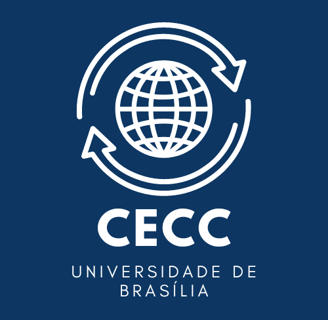
About CECC/UnB
The Center for Comparative Constitutional Studies at the University of Brasília (CECC/UnB) was founded in 2016 by Professor Juliano Zaiden Benvindo along with a group of highly motivated students eager to deepen their knowledge in the field of comparative constitutional law. CECC was born with the vision of becoming a global reference in the in-depth study of comparative constitutional law. Since its inception, CECC has been dedicated to unraveling the complexities of constitutions and constitutional systems around the world, with the firm purpose of contributing to a richer and multifaceted understanding of international legal realities.
Our approach is holistic and multidisciplinary, valuing the diversity of constitutional experiences and promoting an enriching dialogue among different legal traditions. We believe that by investigating the various ways in which constitutions are constructed, interpreted, and experienced in different cultural and political contexts, we can offer valuable insights for addressing contemporary challenges in global governance.
CECC/UnB is not limited to theory; we are committed to applying acquired knowledge to positively influence legal and political practices. Through a vibrant program of activities, including the supervision of cutting-edge academic research, the establishment of partnerships with prestigious international academic institutions, and the organization of events that promote critical and constructive debates on comparative law topics, CECC aims not only to expand the horizons of knowledge but also to shape the future of global constitutional law.
Our commitment to academic excellence and innovation places us at the forefront of comparative constitutional law study in Brazil. With a dedicated team of scholars, students, and professionals, CECC strives to create a stimulating environment where the exchange of ideas and transnational collaboration thrive.
Our goals
Foster research
To foster research in the field of comparative constitutional law at the national level, through the establishment of a knowledge hub located at the Center for Comparative Constitutional Studies at the University of Brasília.
Produce knowledge
To produce internationally applicable knowledge to boost Brazil's presence as a significant reference in comparative constitutional law in major international forums.
Promote scientific initiation
To promote scientific initiation for undergraduate students and to develop advanced research at the master's and doctoral levels.






Promote new knowledges
To diagnose the state of the art of comparative constitutional law, identifying the main obstacles and causes for the lack of development of Comparative Constitutional Law in the national territory.
Propose solutions
To propose solutions and initiatives to reverse the current lack of widespread knowledge on the subject, while simultaneously generating knowledge about the Brazilian reality for utilization in major international forums.
Develop methodological tools
To develop methodological tools for a more appropriate utilization of concepts and techniques of comparative constitutional law by the main national legal institutions, which are currently still dominated by a dogmatic traditionalism that has little dialogue with the major constitutional experiences worldwide. In instances where such dialogue exists, serious methodological mistakes are made. Examples include the decision-making practices of courts, especially the Supreme Federal Court.






Promote partnerships
To promote partnerships and institutional exchanges in the field, such as those already undertaken within the context of CECC, with the leading international research centers in this field of knowledge.
Position UnB
To position the University of Brasília, through its Law School and Graduate Program in Law, as a national reference in a field of broad internationalization, leveraging the research already conducted within its environment for other contexts. The goal is for the University of Brasília to become the international reference when it comes to Brazil in the context of comparative constitutional law.






